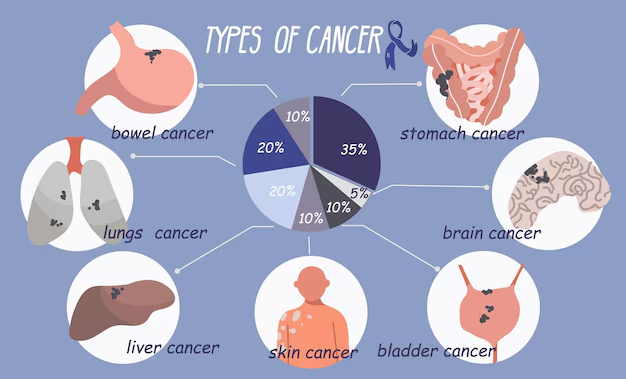“Holistic Health Approaches: A Journey Towards Comprehensive Wellness”
Viewing people as complete beings who integrate their physical, mental, emotional, and spiritual well-being is crucial, according to holistic health approaches. This all-encompassing viewpoint recognizes the interdependence of all facets of health. Holistic health promotes general well-being and balance by concentrating on the underlying causes of health problems rather than just treating their symptoms.
Key principle of holistic health
However, a key principle of holistic health is the recognition that each person or individual is unique. This individuality means that health solutions should be customized to meet specific needs, preferences, and circumstances. Holistic practitioners take the time to understand a person’s lifestyle, environment, and emotional state, all of which can significantly impact health.
Nutrition is a cornerstone of holistic health.
A balanced diet rich in whole foods—such as fruits, vegetables, whole grains, and lean proteins—supports physical health. Holistic nutrition also emphasizes the benefits of consuming organic and locally sourced foods, which not only nourish the body but also support local economies and reduce environmental impact.
Physical activity is equally vital for maintaining holistic health.
However, doing regular exercise improves cardiovascular or heart health, flexibility, and muscular strength. Holistic approaches often promote mindful activities like yoga or tai chi, which not only boost physical fitness but also cultivate mental clarity and emotional stability.
But another crucial or significant element of overall well-being is mental health. Techniques for managing stress, such as meditation, deep breathing exercises, and mindfulness practices, can greatly enhance mental well-being. Holistic health practitioners often recommend incorporating these techniques into daily routines to help individuals cope with stress and anxiety.
Essential component of a holistic approach is emotional well-being
Another essential component of a holistic approach is emotional well-being. Developing solid social ties and relationships can greatly improve emotional health. Holistic health encourages individuals to engage in community activities, volunteer work, or support groups, fostering a sense of belonging and purpose.
A vital component of holistic health, spiritual health is sometimes disregarded in conventional healthcare paradigms. Spirituality can manifest in various forms, including religious beliefs, personal philosophies, or a connection to nature. Holistic practitioners encourage individuals to explore their spiritual beliefs and practices, as these can provide comfort, guidance, and a sense of peace.
Integrative therapies, such as acupuncture, chiropractic care, massage therapy, and herbal medicine, are commonly used in holistic health approaches. Each of these modalities can address specific health concerns while promoting overall wellness. Holistic practitioners often collaborate with other healthcare providers to ensure a comprehensive treatment approach.
Additionally, mind-body techniques are essential to holistic wellness. Techniques like guided imagery, biofeedback, and hypnotherapy help individuals tap into the connection between their mind and body, enhancing relaxation, reducing pain, and improving overall health outcomes.
Self-care is emphasized in holistic health, encouraging individuals to prioritize their well-being through activities that bring joy and relaxation. Whether it’s pursuing hobbies, spending time in nature, or practicing mindfulness, self-care is essential for maintaining balance and health.
One of the main goals of holistic health is preventive care.
By addressing potential health issues before they escalate, individuals can maintain better overall health. Holistic practitioners often provide education on lifestyle choices, nutrition, and stress management, empowering individuals to take charge of their health.
The environment’s role in holistic health is significant. A healthy environment contributes to overall well-being, and holistic health encourages individuals to create spaces that promote relaxation and peace, whether at home or work. This might involve decluttering, incorporating plants, or using natural materials in their surroundings.
Another essential component of holistic health is community support. Interacting with people who have like health objectives can inspire and motivate you. Holistic health practitioners often facilitate group workshops or classes to foster a sense of community and shared learning.
Integrating holistic health practices into day-to-day activities can have a profound impact. Individuals can start with small changes, such as adding more whole foods to their diet or dedicating time to mindfulness practices. Over time, these adjustments can lead to significant improvements in overall health and well-being.
Understanding that holistic health is not a one-size-fits-all strategy is crucial.. What works for one person may not work for another, so individuals are encouraged to explore various holistic practices and discover what resonates with them personally. A deeper comprehension of their health and well-being may result from this investigation.
Holistic health approaches also stress the importance of education. Individuals are encouraged to learn about their bodies, health conditions, and available treatment options. This knowledge empowers them to make informed decisions about their health and well-being.
Holistic health approaches are gaining recognition and acceptance
As the healthcare landscape evolves, holistic health approaches are gaining recognition and acceptance. Many healthcare providers are beginning to incorporate holistic principles into their practices, reflecting a growing understanding of the importance of treating the whole person rather than just isolated symptoms.
Conclusion
In conclusion, holistic health approaches offer a comprehensive framework for achieving and maintaining well-being. People can develop a balanced and satisfying existence by attending to their physical, mental, emotional, and spiritual well-being. Embracing holistic health requires a commitment to self-discovery, education, and personal growth. As individuals embark on this journey, they may find that true health encompasses much more than the absence of disease; it is about thriving in all areas of life.












One thought on ““Holistic Health Approaches: Towards Comprehensive Wellness””